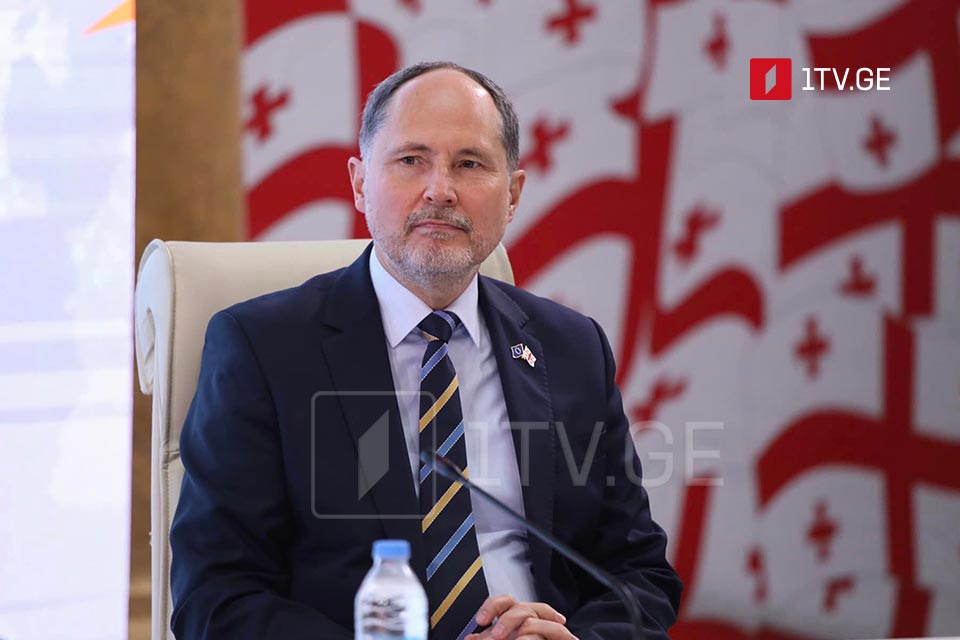Herczynski noted that in the coming days, the situation in Georgia will be a key topic of discussion among EU member states.
“We need to wait for the enlargement report. However, I can repeat what I have already said in the past. Taking into account the decision of EU leaders taken at the highest level to stop Georgia’s accession process, to ask Georgian authorities for clarifications about their true intentions when it comes to Georgia’s membership in the European Union, I think that the positive recommendation would be highly unlikely. A positive decision of 27 member states, by unanimity, to open accession negotiations would be even less likely,” he stated.
“In the coming days and in the coming weeks Georgia and the situation in Georgia will be discussed among 27 EU member states. Actually, let me tell you that only tomorrow, on the 8th of October, there will be a parliamentary debate on Georgia. The high representative vice president has been invited to deliver a speech. I think that one of the commissioners will do it on his behalf. Then next week, on the 14th of October, there will be a meeting of EU foreign ministers where again, formally Georgia has been put on the agenda under so-called current items and again, 27 ministers will have a chance to discuss the situation in Georgia.
Then on the 17th and 18th of October, we will have the European Council and as I understand the president of the European Council, Charles Michel, also suggested to the leaders, 27 prime ministers and presidents of the European Union, to discuss Georgia. Last but not least, we are expecting an enlargement report on Georgia to be issued in the second half of October, which probably will be a few days before the elections or a few days after the elections.
As I see this, the fact that Georgia is discussed in the European parliament, that the situation is Georgia is discussed among 27 foreign ministers, and the situation in Georgia is discussed will be discussed among EU leaders, is not a good sign. It means that the leaders are concerned. It means that we are worried about the developments, and as I have already told you, it was really heartbreaking in June, during the last European Council, to see the decision taken collectively by 27 EU presidents and prime ministers to stop Georgia’s EU accession process. At the same time, they have decided to accelerate the accession process of Ukraine and Moldova. This was necessary due to the very disturbing legislative initiatives, very disturbing initiatives of the Georgian authorities, very disturbing anti-Western, anti-European propaganda narratives, and conspiracy theories that have not stopped. The very dramatic decision, but this is the reality of today’s EU Georgia relationship that I sincerely hope will be changed after the elections, whoever wi” Pawel Herczynski noted.

